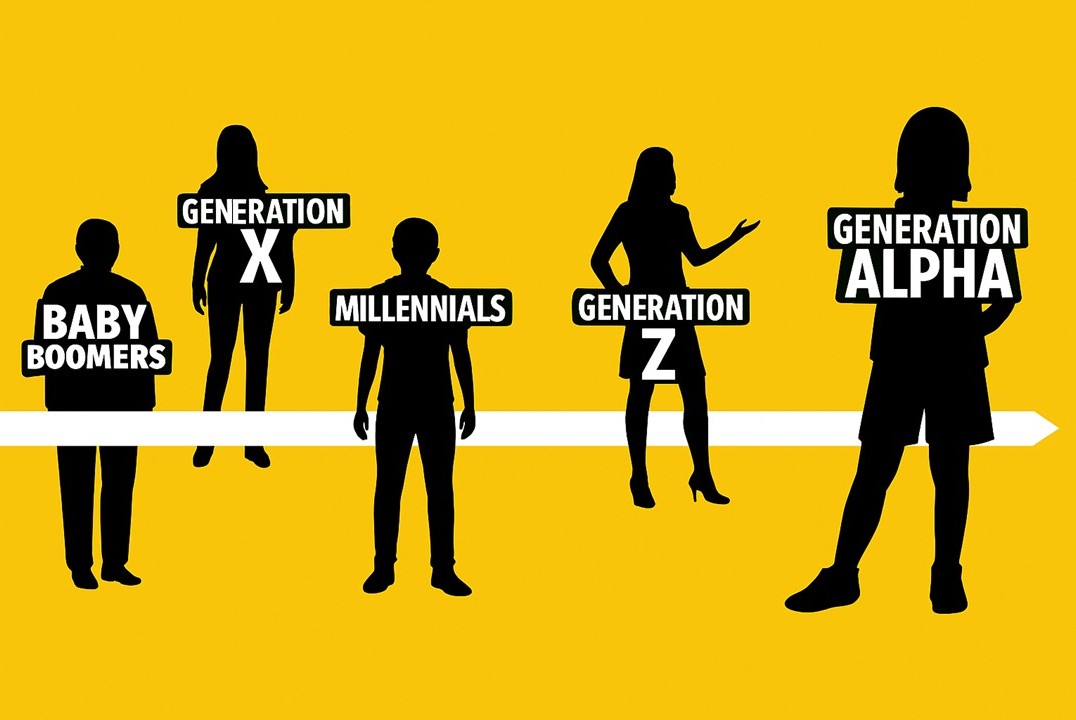At Accelerant Research, our work has spanned every living generation, from the formative experiences of Baby Boomers to the digital-native paradigms of Gen Z. This cross-generational expertise provides a unique lens through which we analyze the next demographic cohort: Generation Alpha. Born between 2010 and 2024, this generation is not merely the successor to Gen Z; they are a cohort whose cognitive, social, and consumer behaviors are being fundamentally shaped by an environment of total technological immersion.
For brands and market strategists, understanding Gen Alpha is not a future-casting exercise—it is an immediate imperative. Their influence is already palpable in household purchasing decisions, media consumption, and brand perception. However, deriving meaningful insights from this group requires a significant evolution in research methodology. Speculation is insufficient; what is demanded is rigorous, longitudinal, and behavioral analysis that begins now.
A Generation Defined by Pervasive Digital Integration
Unlike Millennials who adopted technology or Gen Z who grew up with it, Generation Alpha is the first cohort to be defined by pervasive digital integration from birth. Their developmental milestones are intertwined with interactive technology: learning the alphabet via educational apps, developing social norms through multiplayer games like Roblox, and satisfying curiosity through voice commands to Alexa or Google Assistant.
This has profound implications for research. For Alphas, the distinction between the physical and digital worlds is not just blurred; it often doesn't exist. Consequently, traditional research instruments like static surveys or focus groups can fail to capture the nuances of their decision-making processes.
Our research at Accelerant indicates that a multi-modal approach is essential. To truly understand their cognitive frameworks, we must move beyond self-reported data and embrace observational methods:
- Tech-Enabled Ethnography: Utilizing screen-recording software and in-home cameras (with full parental consent) to observe how children navigate digital ecosystems in their natural environment. This reveals unfiltered patterns of engagement, frustration, and discovery.
- UX & Cognitive Load Testing: Analyzing how Alphas interact with interfaces. We measure not just task completion but also cognitive load—how intuitive or strenuous an experience is. Eye-tracking and biometric feedback provide quantifiable data on where their attention is focused and what elicits an emotional response.
- Contextual Inquiry: Observing children and parents interacting with a product or service together. This uncovers the complex negotiation of influence and gatekeeping within the family unit.
Values Shaped by Curated Exposure and Millennial Parenthood
Generation Alpha is being raised primarily by Millennials—a generation that prioritizes emotional intelligence, open dialogue on social issues, and authenticity. This parental influence, amplified by algorithmically curated content on platforms like YouTube Kids and TikTok, has exposed Alphas to complex global conversations around climate change, social equity, and mental wellness at an unprecedentedly young age.
This environment is cultivating a sophisticated sense of fairness and a demand for authentic representation. For brands, this means generic, one-size-fits-all messaging is not only ineffective but can be perceived as disingenuous.
Our experience in generational segmentation underscores the need for psychographic, not just demographic, analysis. We must investigate the core values driving their preferences:
- What does "sustainability" mean to a seven-year-old? It may manifest as a preference for toys with minimal plastic packaging or an affinity for characters in shows who are environmental stewards.
- How do they perceive "inclusivity"? It's less about abstract corporate statements and more about seeing characters of diverse backgrounds, abilities, and family structures normalized in the content they consume
Persona development for this cohort must be grounded in these nuanced, values-based drivers to foster genuine brand loyalty.
The Emergence of the Pre-Adolescent Conscious Consumer
The principles of conscious consumerism are being integrated into Gen Alpha's worldview from their earliest years. They are not just passive recipients of their parents' sustainable choices; they are active participants. Our in-home studies have shown children as young as six articulating why they prefer one snack over another based on its "healthier" or" earth-friendly" packaging. Their opinions are a powerful force in family CPG, fashion, and entertainment expenditures
This dynamic necessitates a shift toward dyadic and triadic research models that capture the entire family ecosystem. Understanding the "pester power" of this generation requires mapping the decision-making journey from multiple perspectives:
- The Child’s Appeal: What features, characters, or experiences spark the initial desire?
- The Parent’s Veto/Approval Framework: What are the gatekeeping criteria? (e.g., safety, educational value, cost, alignment with family values).
- The Peer Influence Network: How do friends and online creators shape desirability?
Conjoint analysis and qualitative family interviews are critical tools for deconstructing this interplay and identifying the precise messaging that satisfies both the child's want and the parent's need.
Evidence-Based Strategies for Engaging Generation Alpha
Connecting with Generation Alpha demands a synthesis of developmental psychology, human-centered design, and methodological rigor. Based on our extensive cross-generational research, we recommend the following evidence-driven approaches:
Prioritize Interaction Over Interruption: Static advertisements are noise. Our observational research consistently shows that experiences offering agency—even simple choices like customizing an avatar or voting on a story's outcome—dramatically increase engagement duration and message retention. Gamified learning and co-creative platforms are the future of brand communication.
Fuse Education with Entertainment (“Edutainment”): This generation has an innate expectation that digital experiences will be both fun and enriching. Brands that successfully merge these two elements build trust with both children and their parents. Co-creation sessions and iterative prototype testing are essential for striking this delicate balance.
Embed Research within the Family Ecosystem: Isolate testing with children is a flawed model. To validate a concept, research must account for the parent as the ultimate purchaser. We design studies that capture the holistic family perspective, ensuring a product is not only desirable to a child but also defensible to a parent.
Validate Purpose with Unimpeachable Authenticity: Gen Alpha, guided by their media-skeptical Millennial parents, will possess a highly developed "authenticity radar." Corporate claims around sustainability or inclusivity will be scrutinized. Concept testing must go beyond surface-level appeal to pressure-test these messages for believability and perceived sincerity.
Innovate with Emerging Methodologies: Research must meet this generation in their native digital habitats. At Accelerant, we are leveraging child-friendly virtual ethnography platforms, AI-powered analysis of video diaries, and gamified survey interfaces to gather richer, more contextualized data while ensuring the experience is engaging and ethical for our youngest participants.
The Way Forward: From Observation to Foresight
By2030, Generation Alpha will represent a formidable segment of the global consumer base. Their preferences, currently being formed, will soon become entrenched market drivers. The organizations that will lead the next decade are those investing in understanding this generation now—not through demographic snapshots, but through deep behavioral, psychographic, and emotional analysis.
The story of Generation Alpha is still being written. At Accelerant Research, our commitment is to provide the empirical tools and longitudinal frameworks necessary to read it accurately. The time to start listening, observing, and learning is already here.







.png)



